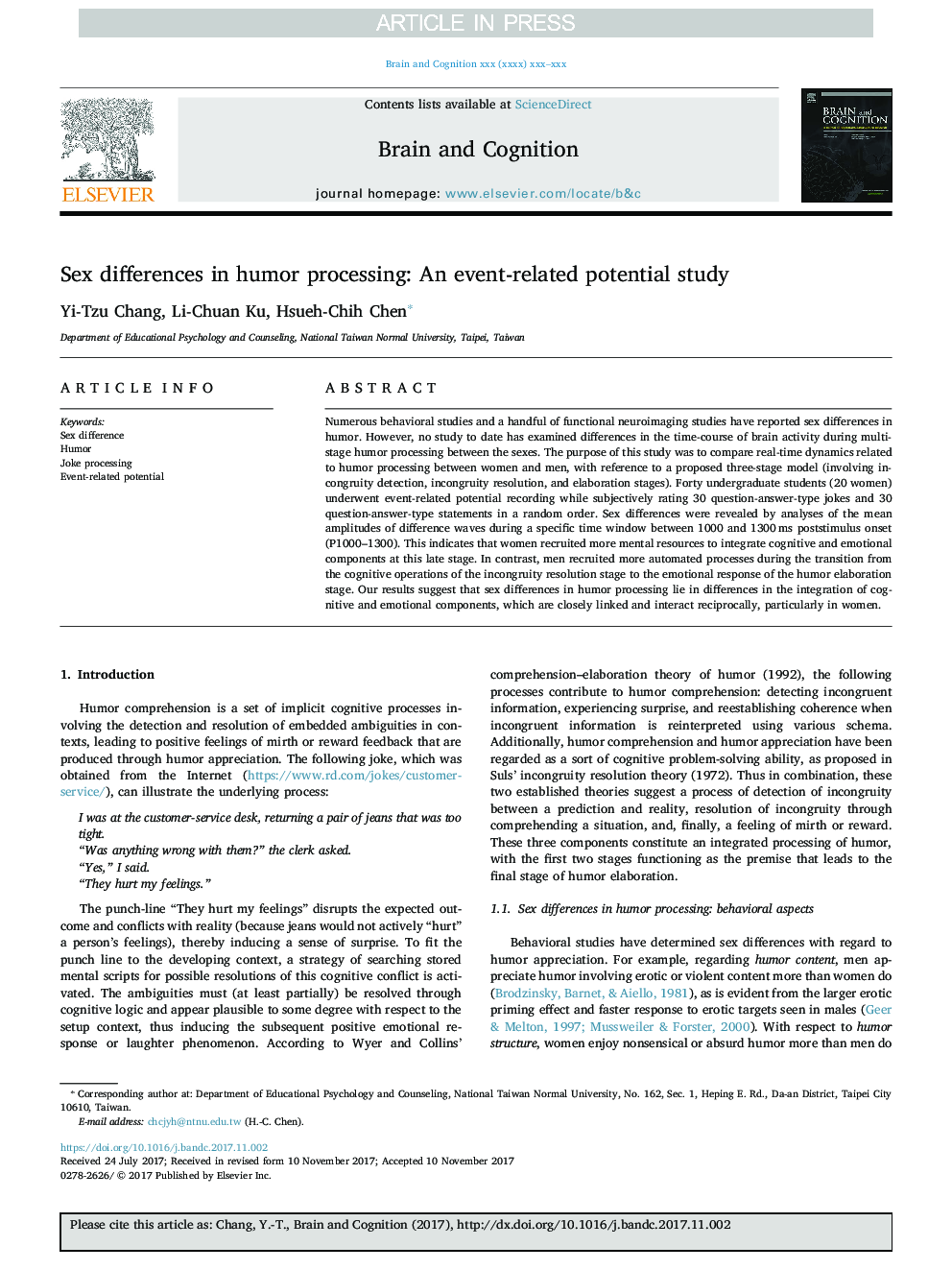| Article ID | Journal | Published Year | Pages | File Type |
|---|---|---|---|---|
| 7282769 | Brain and Cognition | 2018 | 9 Pages |
Abstract
Numerous behavioral studies and a handful of functional neuroimaging studies have reported sex differences in humor. However, no study to date has examined differences in the time-course of brain activity during multistage humor processing between the sexes. The purpose of this study was to compare real-time dynamics related to humor processing between women and men, with reference to a proposed three-stage model (involving incongruity detection, incongruity resolution, and elaboration stages). Forty undergraduate students (20 women) underwent event-related potential recording while subjectively rating 30 question-answer-type jokes and 30 question-answer-type statements in a random order. Sex differences were revealed by analyses of the mean amplitudes of difference waves during a specific time window between 1000 and 1300â¯ms poststimulus onset (P1000-1300). This indicates that women recruited more mental resources to integrate cognitive and emotional components at this late stage. In contrast, men recruited more automated processes during the transition from the cognitive operations of the incongruity resolution stage to the emotional response of the humor elaboration stage. Our results suggest that sex differences in humor processing lie in differences in the integration of cognitive and emotional components, which are closely linked and interact reciprocally, particularly in women.
Related Topics
Life Sciences
Neuroscience
Cognitive Neuroscience
Authors
Yi-Tzu Chang, Li-Chuan Ku, Hsueh-Chih Chen,
